The Biggest Lies, Scams, And Deceptions Throughout History
Have you ever told a lie? We’ve all done it. Sometimes it’s a way to avoid embarrassment or dodge responsibility. But history is filled with some of the most outrageous and dangerous lies ever told.
Take a look at some of these shocking falsehoods and discover the tragic consequences that followed. From cover-ups to fabrications, we reveal the truth about history’s biggest lies.
Bernie Madoff: The Man Who Shook the World's Stock Markets
Bernie Madoff left world stock markets reeling as a result of his criminal activities. The disgraced financier defrauded thousands of investors of billions of dollars, making it the largest Ponzi scheme and financial fraud perpetrated in U.S. history.
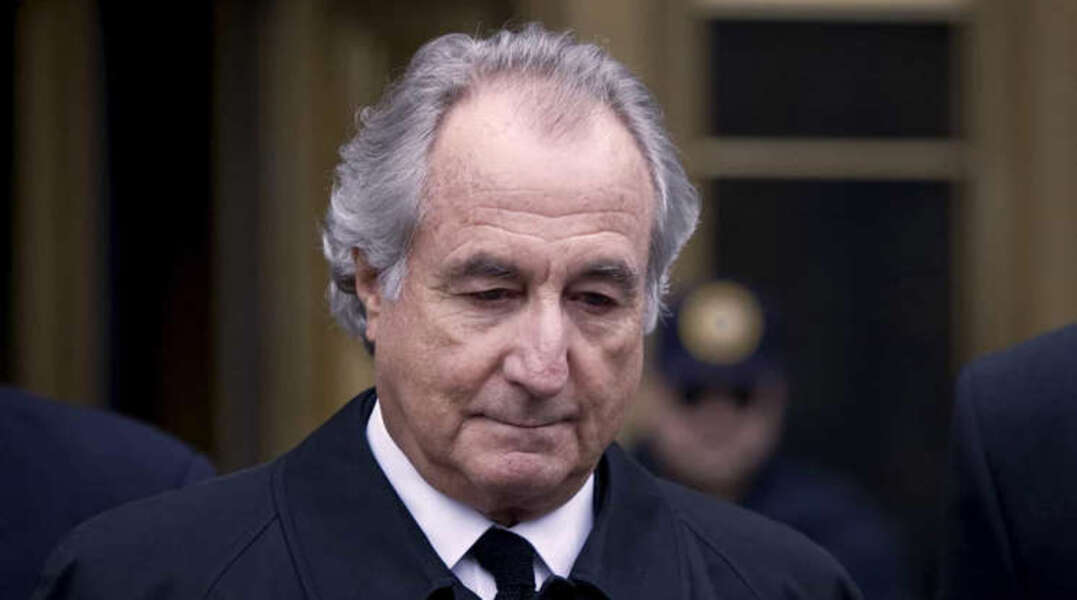
Source: Getty Images
In 2009, Madoff was sentenced to an unprecedented term of 150 years in prison, where he died in April 2021. His infamous case has gone down as an example of a man willing to do anything for money.
Tragedy of Titanic: Unsinkable Hubris?
When the RMS Titanic was launched in 1911, the people who built it – Harland and Wollf – never claimed the liner was unsinkable. However, when White Star Line officials were made aware of the Titanic’s collision with an iceberg on April 15, 1912, Vice President P.A.S. Franklin allegedly declared that they “placed absolute confidence in the Titanic” and that they believed it was unsinkable.

Source: Getty Images
As it turned out, the hubris of these words cost more than 1,500 lives when the ship eventually sank. The Titanic tragedy serves as a stark reminder of the dangers of overconfidence.
Unearthing the Tale of the Trojan Horse
For centuries, the story of the Trojan Horse has been etched in our minds as a symbol of trickery and deception. It all began with the Greeks, who built a giant wooden horse with soldiers hidden inside.

Source: Getty Images
Unaware of the hidden agenda, the Trojans pulled the horse into their city, only to be caught unawares when the Greeks emerged from the horse and opened the gates for the rest of the army. Even today, a malicious computer program that misleads users into running it is referred to as a “Trojan horse.”
The Iraq War: A Conflict Built on False Pretenses
The fateful decision to invade Iraq in 2003 was taken by the United States, the United Kingdom, and several coalition forces, based on their belief that the country, led by Saddam Hussein, had an active weapons of mass destruction (WMDs) program.

Source: Getty Images
Sadly, no evidence of WMDs or a WMD program was ever discovered in Iraq. This military campaign, marked by loss of life and immense destruction, was based on false pretenses and continues to have serious repercussions to this day, though it also brought about the downfall of a tyrannical dictator.
From Denial to Demolition: The Rise and Fall of the Berlin Wall
Once the head of East Germany, Walter Ulbricht, declared in June 1961 that “Nobody has the intention of building a wall.” But two months later, the construction of the Berlin Wall began.

Source: Getty Images
For almost three decades, it became a symbol of the Cold War, standing as a barrier between East and West Berlin. After the fall of the Soviet Union in 1989, the wall was finally torn down, signifying the end of a time of fear and separation. The Berlin Wall represented a tumultuous period in history, and its fall symbolized hope and unity.
Unraveling the Mystery of Anna Anderson: The Woman Who Claimed to be Anastasia Romanov
In 1921, Anna Anderson was admitted to a hospital, claiming to be the youngest daughter of the Romanov family who had escaped the 1918 massacre of her family. In 1938, Anderson filed a lawsuit to prove her identity but failed.

Source: Getty Images
When the Romanov family’s remains were eventually located and DNA was taken, although none matched Anderson’s. It was later revealed that Anderson was actually a Polish factory worker named Franziska Schanzkowska. Anderson passed away in 1984, her claims having been discredited.
The McCartney Mystery: The Unsolved Urban Legend
For over 50 years, a legend has been circulating suggesting that Paul McCartney of the Beatles died in 1966 and been replaced by a lookalike. Fuel was poured on the fire when the iconic Abbey Road album was released in 1969.

Source: Getty Images
The album cover showed the Beatle barefoot and out of step with the rest of the band, and the number plate of the VW contained the characters LMW 28IF, which could be interpreted as McCartney’s age “if” he had still been alive. Despite numerous attempts to debunk the rumor, it persists.
The Notorious Charles Ponzi: Mastermind of the Unstoppable Pyramid Scheme
Charles Ponzi, the infamous Italian con artist, is forever remembered for his lasting and enduring fraudulent scheme. In 1919, Ponzi designed a pyramid scheme that revolved around the buying and selling of international reply coupons.
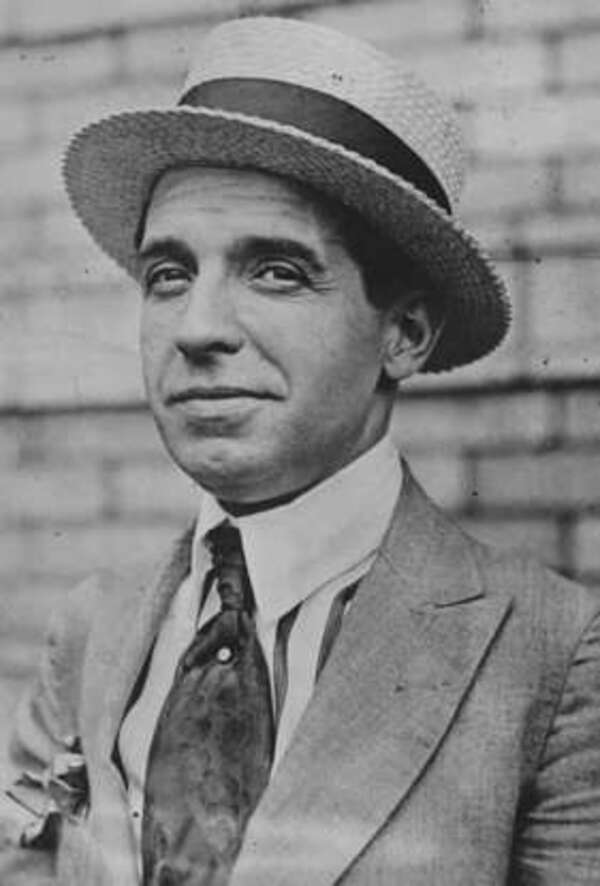
Source: Getty Images
He persuaded investors to entrust him with millions of dollars by offering them huge returns. In reality, Ponzi just used the investments of later investors to pay his earlier ones. He is still infamous for the unstoppably destructive nature of his pyramid scheme.
The Infamous Milli Vanilli: Unveiling a Music Industry Scandal
Milli Vanilli, the German R&B duo of Fab Morvan and Rob Pilatus, skyrocketed to fame in the late ’80s and early ’90s. But their success was short-lived, as their ruse was exposed during a live MTV performance.

Source: Getty Images
It was revealed that the vocals heard in their music releases belonged to other singers and not to them. The iconic song ‘Girl You Know It’s True’ that the two were lip-syncing to was emblematic of the scandal that rocked the music industry.
The 1919 World Series Scandal: When Baseball Betrayed its Fans
In 1919, the Chicago White Sox faced a fateful decision: accept a massive bribe to lose the World Series or remain true to their fans.
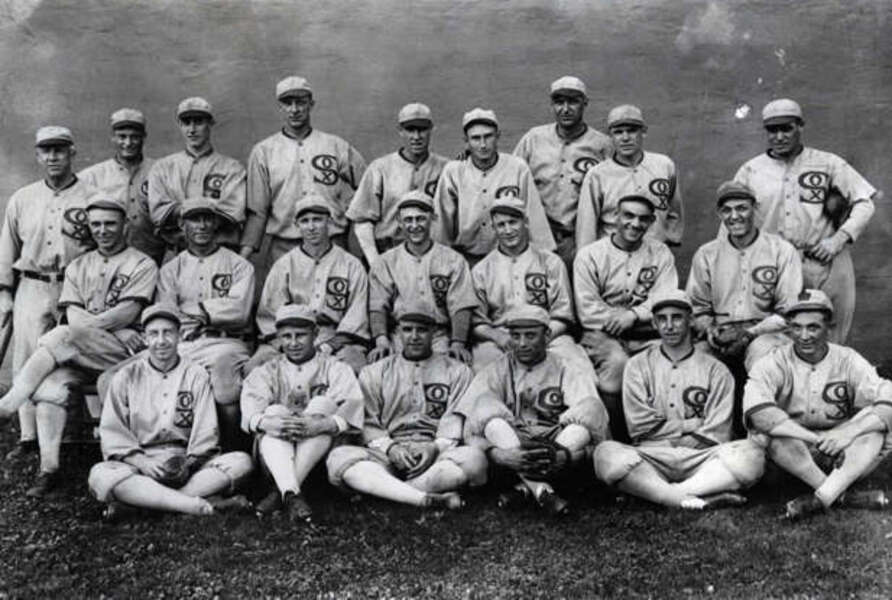
Source: Getty Images
Sadly, some members of the team chose the former, taking as much as $1.5 million in today’s money to throw the series to the Cincinnati Reds. The consequences of this scandal are still felt in the sports world today and are a salutary reminder of the importance of remaining true to one’s principles.
Trump's False Claims Keep Fact Checkers on Their Toes
Donald Trump’s presidency placed a heavy burden on fact-checkers. After taking office in January 2017, the President made plenty of bold statements that demanded to be verified.

Source: Getty Images
For example, Trump claimed his inauguration was attended by 1.5 million people, making it the “largest audience to ever witness an inauguration, period.” This number was later proven to be a vastly exaggerated figure. Trump’s false claims kept fact-checkers on their toes, with the need to constantly verify his statements.
Unjust Imprisonment of Alfred Dreyfus: A Tale of Injustice
Alfred Dreyfus, a Jewish officer in the late 19th-century French army, was wrongfully accused of selling military secrets to Germany. He was found guilty and sentenced to five years imprisonment on Devil’s Island, a particularly harsh place.

Source: Getty Images
However, it was later revealed that the accusation was fabricated by Major Ferdinand Walsin Esterhazy. This sparked great controversy in France, further aggravated by novelist Émile Zola’s accusations of a vast cover-up. The injustice towards Alfred Dreyfus brought to light a deep-rooted problem of antisemitism, prejudice, and inequality in France.
Bats on the Moon - A Hoax Revealed!
Have you ever heard of bats living on the Moon? In 1835, a series of articles appeared in the New York newspaper, The Sun, claiming that such creatures had been discovered and that the eminent astronomer Sir John Herschel was the source.

Source: Public Domain
However, it was later revealed to be a hoax created by Richard Locke, a reporter for the paper. This strange story has been passed down through the ages, a reminder that not everything we read is necessarily true!
Unveiling the Loch Ness Monster Hoax
In 1934, the Daily Mail published a photo of the alleged Loch Ness Monster, causing much of the United Kingdom to believe in its existence. However, the “monster” turned out to be nothing more than a toy submarine with a head and neck made of wood putty – a clever hoax that had been kept under wraps for decades.

Source: Getty Images
From Scotland’s picturesque lochs to the collective imagination of the U.K., the hoax had a lasting effect on the world, still remembered to this day.
Comeuppance of a President: Bill Clinton's DNA Found on Monica Lewinsky's Dress
In 1998, former President Bill Clinton emphatically denied having sexual relations with Monica Lewinsky. But this denial was soon put to rest when his DNA was found on a stain on the intern’s dress.

Source: Getty Images
This moment of truth became known as his comeuppance and remains a controversial moment in history. After all, how could the leader of the free world be implicated in such a scandal? Ultimately, this episode serves as a reminder that no one is ever above the law, no matter how powerful they may be.
Unearthing the Fake Link: The Piltdown Hoax
In 1912, amateur archaeologist Charles Dawson and a geologist from the British Natural History Museum made a startling announcement – the discovery of the remains of a “missing link” between ape and man.
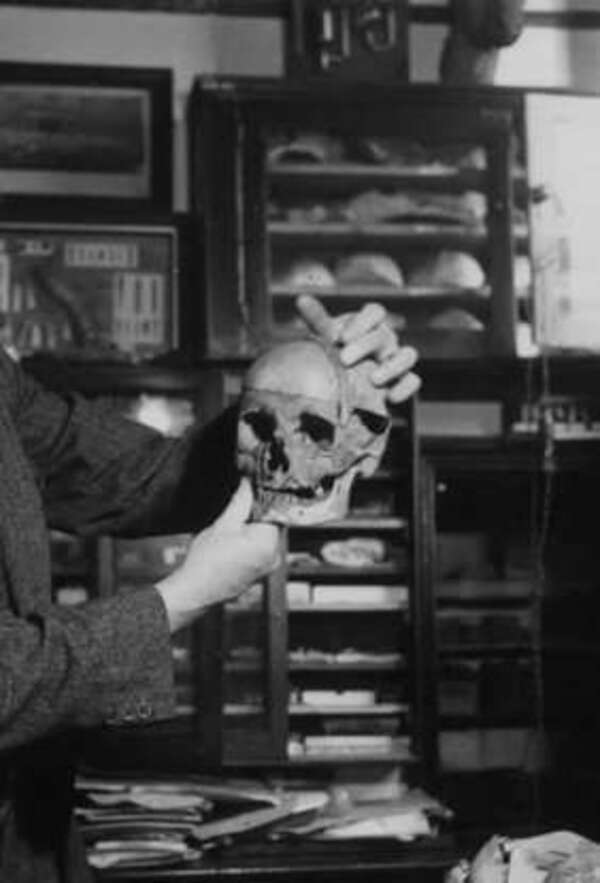
Source: Getty Images
Little did they know that the skull fragments and jawbone found near Piltdown, England were part of a carefully crafted hoax. The bones were stained to look old, and the teeth, which likely came from an orangutan or chimpanzee, were filed down to appear human. This elaborate ruse fooled the scientific community for decades, highlighting the importance of critical thinking and skepticism in the scientific process.
The Downfall of Lance Armstrong - The Doping Scandal That Shook the Cycling World
Lance Armstrong was once a hero to many, a cancer survivor, and an American road racing cyclist who had won the Tour de France multiple times. For years, he denied any involvement in doping, but in 2013, he finally confessed to it.

Source: Getty Images
This shocking admission would strip him of all his achievements from August 1998 and his incredible seven Tour de France titles. It was a scandal that shook the cycling world and tarnished the reputation of one of the greatest athletes of his time.
The Unsuspecting Nazis Outwitted by Alan Turing
In 1941, Alan Turing, a British mathematician, astounded the world with his success in cracking the Nazi Enigma code. This code had been used to coordinate German U-boat attacks on the Allied fleet in the North Atlantic.

Source: Getty Images
To protect the Allies, Ultra, a top-secret Allied intelligence project, was set up to feed the unsuspecting Nazis disinformation. As a result, the enemy forces were kept off their trail, allowing the Allies to remain one step ahead of them. Thanks to Alan Turing’s genius, the Allies were able to gain the upper hand in the war.
A War Averted: The Cuban Missile Crisis
The Cuban Missile Crisis of 1962 was a harrowing experience for the world, as two of the greatest superpowers of the time were on the brink of nuclear war.

Source: Getty Images
The Soviet Union had been sending defensive weapons to Cuba, but the U.S. had suspicions that other missiles were being supplied, and President Kennedy was convinced that Nikita Khrushchev had ulterior motives. Thankfully, through careful negotiations, the crisis was averted and a nuclear war was prevented. The world breathed a collective sigh of relief.
Panic on the Airwaves - Listeners Believe Earth is Under Attack from Martians
In 1938, Orson Welles put on the most shocking performance of the century. Directing and narrating an episode of ‘The Mercury Theatre on the Air’, Welles presented an adaptation of H.G. Wells’ novel The War of the Worlds as a series of live news bulletins.

Source: Getty Images
The alarming news updates were so realistic that people across the U.S. were sent into a state of panic, believing Martians had indeed invaded Earth! It was one of the most sensational hoaxes of its time.
The Twisted Tale of Titus Oates: From Perjury to Pension
Titus Oates was an Anglican who caused a stir in 1678 when he fabricated a Catholic conspiracy to assassinate King Charles II. His wild claims resulted in a wave of anti-Catholic sentiment in the country.
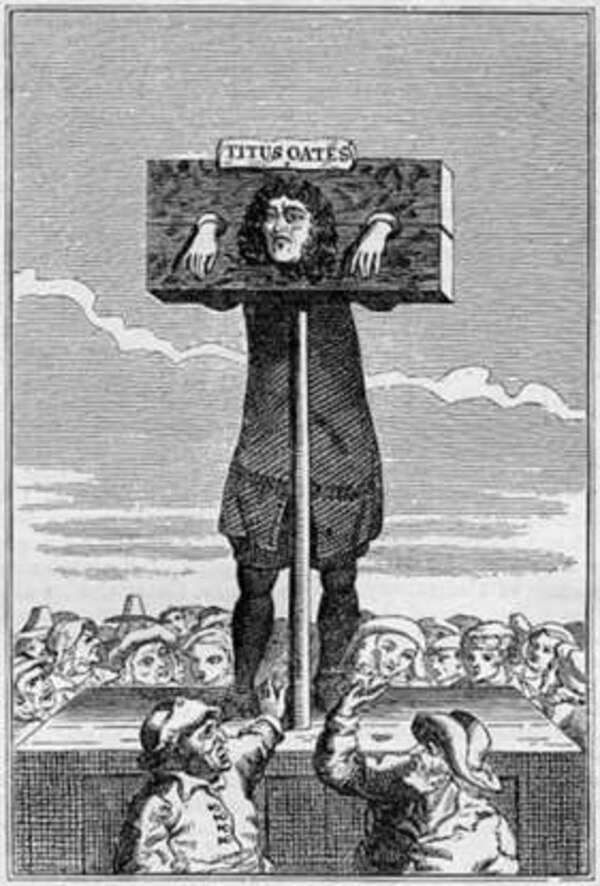
Source: Public Domain
When Charles’ successor, King James, heard of this, he had Oates tried and convicted of perjury. However, his story didn’t end there! William III eventually pardoned Oates and even granted him a pension. This peculiar tale of a man who went from incarceration to comfort is sure to leave you in shock.
Gullible Sir Arthur Conan Doyle Duped by Two Young Cousins and Their Fairy Tale!
Once upon a time, two young cousins, Elsie Wright, and Frances Griffiths managed to pull off an extraordinary hoax – fooling none other than the great writer Sir Arthur Conan Doyle! In 1917, the mischievous pair faked a series of photographs that appeared to show them meeting mythical fairies at Cottingley in northern England.

Source: Getty Images
It wasn’t until the 1980s that Elsie and Frances admitted the “fairies” were actually cardboard cutouts copied from a children’s book. It just goes to show even Sherlock Holmes’ creator can be taken in by a fairy tale!
The Infamous Hitler Diaries Hoax
The ‘Hitler Diaries’ hoax was one of the most notorious scandals to shock German journalism after 1945. On April 25, 1983, Stern magazine made a sensational announcement of their reporter discovering a series of 60 volumes of purported journals written by Adolf Hitler.

Source: Getty Images
However, soon it was revealed that the diaries were nothing but a fraudulent work of Konrad Kujau, a forger who was eventually caught and sent to prison. The aftermath of the hoax brought about several newspaper editors losing their jobs.
Feejee Mermaid: Phineas Taylor Barnum's Greatest Hoax
Phineas Taylor Barnum, the famous American showman, was renowned for his ability to exploit the public’s eagerness for the extraordinary. In 1835, Barnum introduced Joice Heth as George Washington’s 161-year-old nursemaid, only to be exposed after her death as being only 80 years old.
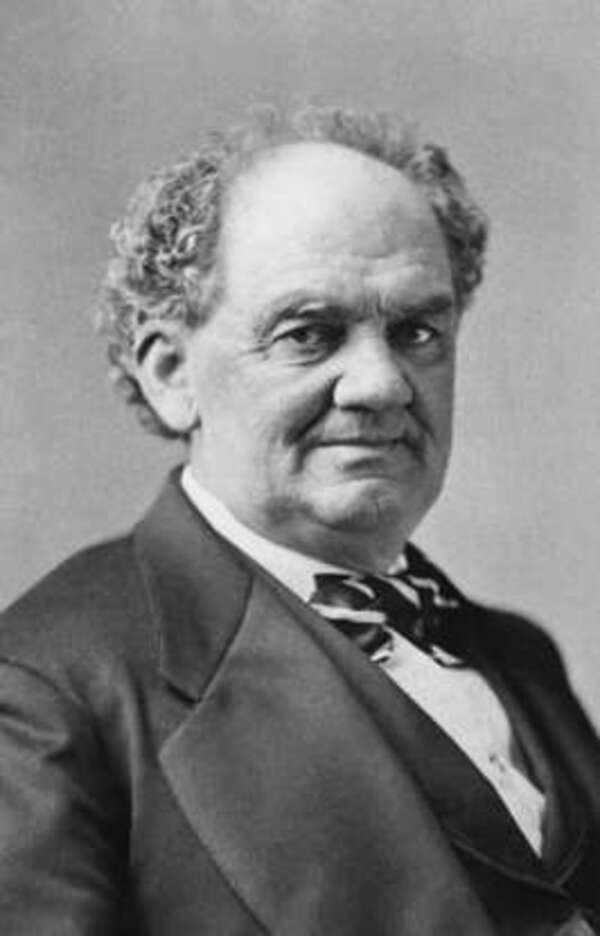
Source: Getty Images
Barnum’s greatest hoax arguably came in 1842 when he unveiled the “Feejee Mermaid” – a creature that boasted a monkey’s body and a fish’s tail. The “Feejee Mermaid” became one of Barnum’s most celebrated spectacles.
The Master of Deception: Han van Meegeren
Han van Meegeren was a master of deception. Born in 1889, the Dutch painter is widely regarded as one of the most ingenious art forgers of the twentieth century. He managed to fool some of the most skilled art critics and historians of his time with his meticulously crafted forgeries of some of the world’s most renowned artists, including Pieter de Hooch and Johannes Vermeer.

Source: Getty Images
His mastery of the craft, which he developed over the years, enabled him to pull off impressive scams and become one of the most talked-about art forgers in history.
"I Am Not a Crook": Nixon's Infamous Declaration
U.S. President Richard Nixon uttered one of the most memorable lines in American political history: “I am not a crook.” While speaking on national television, Nixon vehemently denied any involvement in the June 1972 Watergate break-in, and proclaimed that “there can be no whitewash at the White House.”

Source: Getty Images
Despite his protests, Nixon resigned from office just over a year later, on August 9, 1974. His resignation made him the first-ever U.S. president to do so, cementing his name in history.
The Power of Propaganda: Nazi Germany's Deadly Deception
Adolf Hitler and his minister of propaganda, Joseph Goebbels, used terror, coercion, and mass manipulation to launch a nationwide campaign that convinced the German people that Jews were the enemy. Through this powerful propaganda, which was devastatingly effective, Hitler was able to spread anti-Semitism across the country.

Source: Getty Images
This ultimately led to the implementation of a national policy called the “final solution” – a policy of genocide and ethnic cleansing of the Jewish people. The power of propaganda was so great that it enabled the Nazi’s to carry out their inhumane hatred and violence.
The Profumo Affair: A Scandalous Liaison
The Profumo Affair of 1963 rocked British politics, as Secretary of State for War John Profumo was forced to admit his sexual relationship with Christine Keeler, a would-be model. Adding to the scandal was Keeler’s involvement with Captain Yevgeny Ivanov, a Soviet naval attaché.
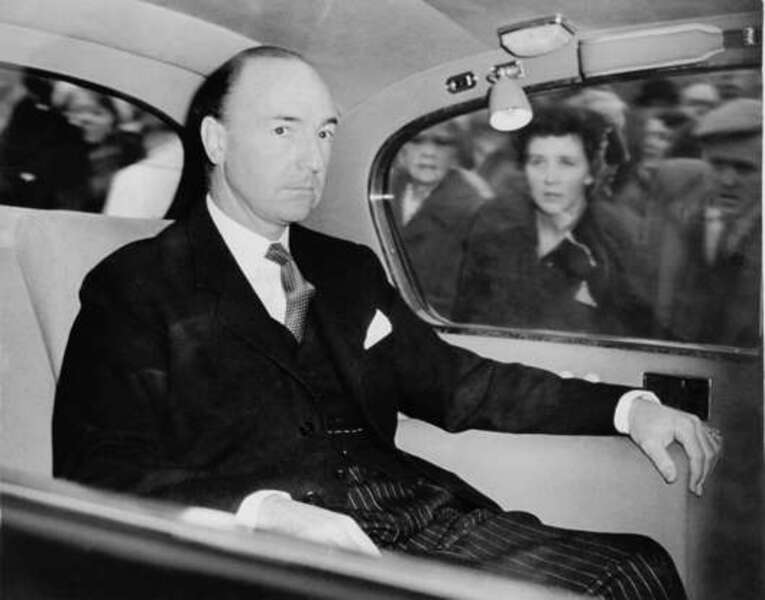
Source: Getty Images
Profumo was forced to leave his government and parliamentary posts in shame, and the scandal continued to haunt the political landscape for years to come. It remains one of the most well-known and salacious stories of British politics.
The Devastating Consequences of Andrew Wakefield's Controversial Study
In 1998, Andrew Wakefield, a British physician, published an article in the respected medical journal Lancet that linked autism to the MMR vaccine. Despite its incredibly small sample size and ethical issues, the study received wide publicity and triggered a decrease in childhood vaccination rates.

Source: Anthony Devlin/Pa Images Via Getty Images
In the years that followed, thousands of preventable cases of measles occurred in the U.K., as well as a resurgence of the disease in the U.S. Wakefield’s controversial paper ultimately cost many people their health and cost Wakefield his medical license.
The Deadly Truth Behind Cigarette Companies
For decades, the cigarette industry lied to consumers, claiming that their product was not addictive and did not pose any health risks. However, the truth is that cigarettes are just as addictive as cocaine and opioids and can have majorly detrimental effects on the body, leading to cancer, emphysema, heart disease, and more.

Source: Bettmann/Getty Images
As recently as 1998, the four largest tobacco companies agreed to pay $206 billion to help with the medical expenses of illnesses caused by their pernicious products. It’s time to realize the deadly truth behind cigarettes.
